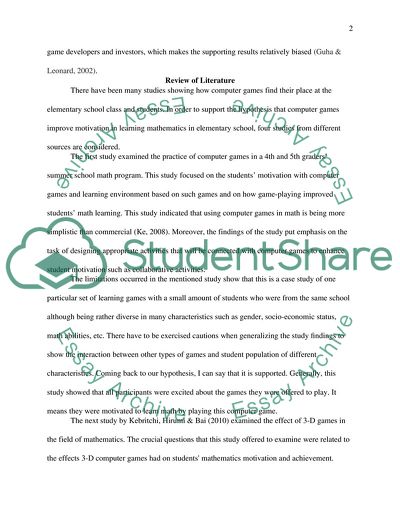Cite this document
(“Computer Game Improves the Motivation of Learning Mathematics Research Paper”, n.d.)
Retrieved from https://studentshare.org/education/1604634-computer-games-improves-motivation-in-elementary-school-math
Retrieved from https://studentshare.org/education/1604634-computer-games-improves-motivation-in-elementary-school-math
(Computer Game Improves the Motivation of Learning Mathematics Research Paper)
https://studentshare.org/education/1604634-computer-games-improves-motivation-in-elementary-school-math.
https://studentshare.org/education/1604634-computer-games-improves-motivation-in-elementary-school-math.
“Computer Game Improves the Motivation of Learning Mathematics Research Paper”, n.d. https://studentshare.org/education/1604634-computer-games-improves-motivation-in-elementary-school-math.


